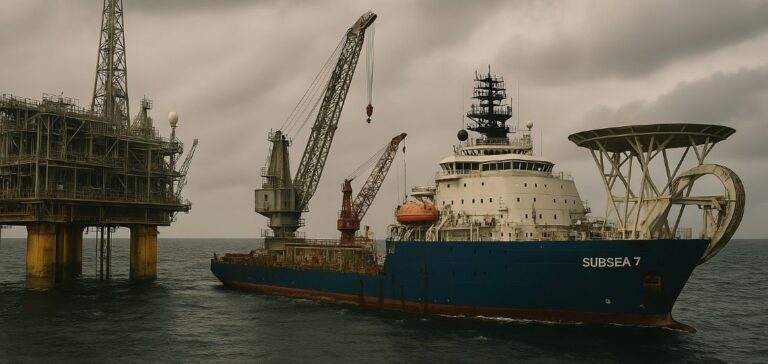Shell Offshore Inc., a subsidiary of Anglo-Dutch energy company Shell plc, has awarded a substantial contract to Subsea 7 S.A., an offshore engineering and services provider, for its deepwater Sparta development located in Garden Banks block 959 in the Gulf of Mexico. The site lies off southeastern Louisiana, with water depths reaching up to 1,635 metres.
The contract, described as “sizeable,” is valued between $50mn and $150mn and covers the transportation and installation of a floating production system. Engineering and project management operations will commence immediately from Subsea 7’s Houston office, while offshore activities are scheduled to begin in 2027.
Strategic development for Shell and Equinor
The Sparta project marks Shell’s fifteenth deepwater facility in the region, following previous semi-submersible installations at the Vito and Whale sites. The final investment decision was made in December 2023, with production expected to begin in 2028.
The project is 51% owned by Shell, which also acts as the main operator, and 49% by Norwegian firm Equinor ASA through its Gulf of Mexico operational unit. Sparta is expected to reach a peak production of 90,000 barrels of oil equivalent per day, with estimated recoverable resources of 244mn barrels of oil equivalent.
Reuse of existing technical assets
Shell plans to apply a replication strategy for this project, reusing approximately 95% of the hull of the Whale Floating Production Unit (FPU) and 85% of its topsides. This method aims to shorten deployment times and improve cost control on complex offshore projects.
A parallel integrated engineering, procurement, construction and installation (EPCI) contract has been awarded to TechnipFMC, which will deploy high-pressure subsea production systems for site development.
Renewed partnership with Subsea 7
The collaboration between Shell and Subsea 7 continues following previous achievements, such as the development of the Vito field. This new contract underlines Subsea 7’s growing presence in deepwater infrastructure projects, particularly in the Gulf of Mexico basin.






















